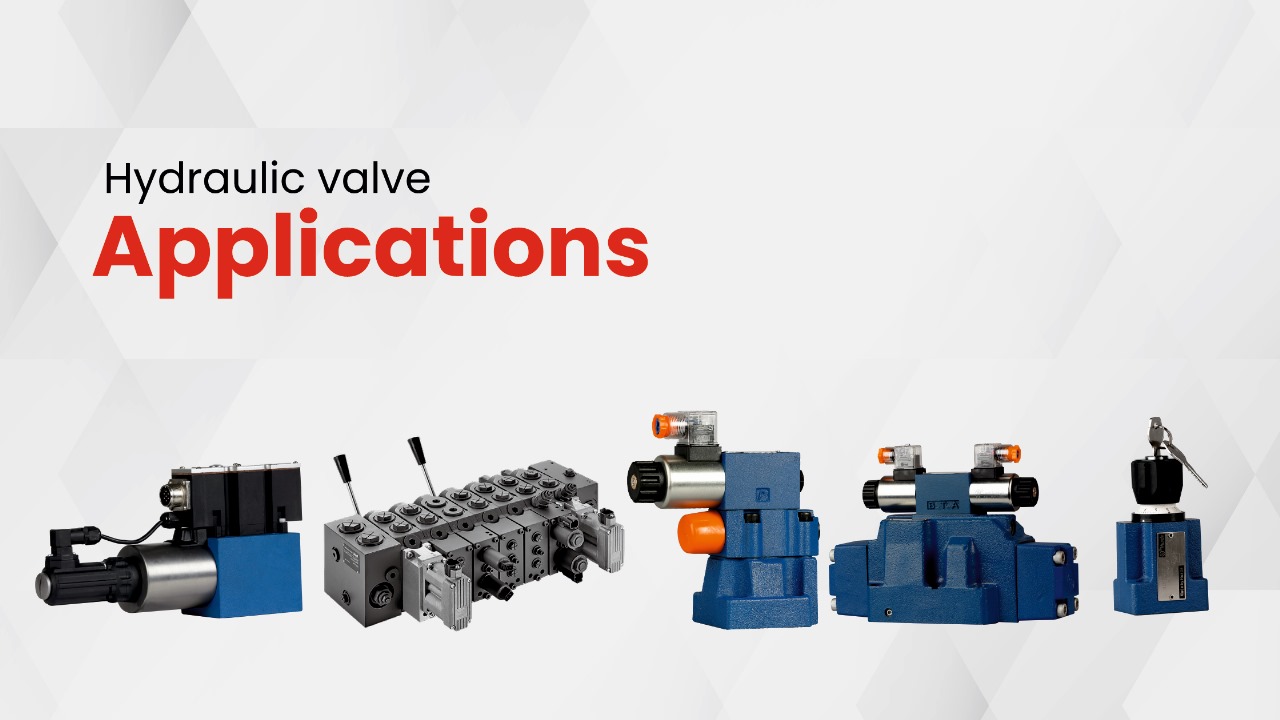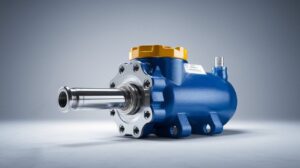The hydraulic valves are relevant in the control of pressure, direction, and flow of hydraulic systems. These valves help to improve the efficiency, safety and performance of construction, manufacturing, and farming industries. The hydraulic control valve, pressure valve, and flow valve are all adequate in a bid to make sure that machines operate efficiently and accurately. Hydraulic valve applications are important in the operation of the modern industrial machines and they provide reliability, flexibility, and better operation performance.
Step 1: Understanding Hydraulic Valve Applications
Applications of hydraulic valves in the current industrial systems are crucial in regulating the flow and pressure of hydraulic fluids. These valves control the direction, volume and power in machines making them run smoothly and efficiently. Hydraulic valves are employed in manufacturing to boost performance, waste reduction, and productivity in general.
When selecting the appropriate hydraulic valves, one should have an idea of how various types of them operate, and their impact on the efficiency of the machine.
Step 2: Key Functions of Hydraulic Valves
Hydraulic valves have a number of critical purposes which directly affect the system efficiency and control. The key roles they play are as follows:
- Flow Regulation: Regulate the flow rate of hydraulic fluid through the system.
- Pressure Management: Be careful of the pressure to prevent overloading of the system.
- Directional Control: Direct the movement of the fluid to given parts.
- Safety: Preclude leakages and damages when operating.
Lack of the correct hydraulic control valve would create problems in performance or loss of energy operating the machine, which would reduce the efficiency of the output.
Step 3: Common Hydraulic Valve Types
Hydraulic valves come in a number of designs based on the needs of the system. Some of the key hydraulic valves that are applied in industries include:
- Directional Control Valves – Control the flow of fluid in the circuit.
- Pressure Relief Valves – cushion systems against the accumulation of pressure.
- Flow Control Valves – Control the flow rate at a constant rate of operation.
- Proportional Valves – It gives a variable control depending on signal input.
- Check Valves – Only allow one way flow and not control back flow.
The types of valves have their own benefit and use according to the design of the system and the pressure requirements.
Step 4: Advantages of the Hydraulic Valves in Industries
Hydraulic valves help in efficiency in a variety of ways. Here are the top advantages:
- Enhanced Energy Saving: Loss of fluid and energy minimized.
- Improved Accuracy: Accurate motion and flow control.
- Extended Service: Eliminates pressure shocks and mechanical stress.
- Less Downtime: Easily maintained systems diminish interruptions in the system.
- Higher Productivity: Guarantees higher response and operation.
The hydraulic valve is critical to ensuring stability of the operations in the machine and automated production systems.
Step 5: Hydraulic Valves in Industrial Use
Hydraulic valves are needed in smooth operation in different industries and they include:
- Construction Equipment – Hydraulic pressure valves are used in the lifting and movement of excavators, loaders and cranes.
- Manufacturing Lines – Line used in automation to control of precision movement.
- Agricultural machinery – Increases the control in tractor and harvesting machines.
- Oil and Gas Industry – Works in conditions of high pressure and safety.
Step 6: Importance of Hydraulic Valve Maintenance
The maintenance of proper hydraulic valves can make sure that performance of the system is not compromised. The following are some of the important maintenance tips:
- Look out for cracks and leaks.
- Wipe filters to avoid contamination.
- High-quality hydraulic fluid is used to improve life.
- Flow and pressure test.
- Change deteriorated seals or parts immediately.
Maintenance saves you the cost of having to repair the hydraulic valve applications and helps in maintaining a smooth running of your hydraulic valve applications.
Step 7: Choosing Reliable Hydraulic Valve Manufacturers
With long-term success, it is important to choose appropriate hydraulic valve manufacturers or suppliers. The manufacturers are trusted which ensures quality materials, correct design, and after sales.
The things to pay attention to when purchasing hydraulic valves are:
- Standards compliance and certification.
- Service availability, warranty of products.
- Fits your system pressure and flow requirement.
- Customization and technical support.
Common mode codes of Hydraulic valves
THM MCP-01-0-30, THM MCT-01-0-30, THM MCT-01-2-30, THM MCT-02-P-K, FMS-G02T/220V, FMS-G02T/24V, THM 4WRKE10V1-50L-3X/6EG24EK31/A1D3M, THM 4WRKE10V1A-50L-3X/6EG24EK31/A1D3V, THM 4WRKE16E200L-3X/6EG24EK31/A5D3M, THM 4WRKE16W200-3X/6EG24K31/A5D3, THM 4WRKE27E500L-35/6EG24EK31/A1D3M, THM 4WRKE27W500P-3X/6EG24K31/A5D3M-709, THM Z2S16-1-50T, THM DBW52-P-2-3X-31.5-U-6EG24Z5L-V, THM Z50 AES3-12V DC-G, THM Z50 AES3-24V DC-G
Conclusion: Power and Precision Through Smart Valve Selection
When selecting hydraulic valves used in industrial operations, it is possible to have superior control, safety, and performance. Knowing the functions that they perform, types, and maintenance requirements, you are able to optimize productivity at minimum cost.
In you find advanced hydraulic valves, THM Huade is a reliable brand that provides long life long service, high performance and efficient hydraulic components to industries in India.
Get in touch with us as soon as possible to see how our hydraulic valves can be used to drive your next industrial success.
FAQs – Hydraulic Valve Applications
Q1. What are the benefits of hydraulic valves?
One of the advantages of hydraulic valves is the fact that the pressure and flow that is required to be smooth, safe, and efficient in hydraulic systems are easily controlled.
2. How do hydraulic valves improve industrial efficiency?
Their ability to control energy consumption, eliminate pressure loss and ensure consistency in performance minimizes the amount of down-time and increases productivity.
3. What industries benefit most from hydraulic valves?
Construction, manufacturing, agricultural and oil and gas industries often use hydraulic valves as a source of power and control as well as the assurance of performance.
4. How do hydraulic valves contribute to energy efficiency?
Hydraulic valves help to save energy and make machines work at full capacity due to pressure and flow optimization.
5. How are hydraulic systems increasing productivity in manufacturing?
They have quick, accurate movement control which makes production cycle quicker and enhances output consistency.
6. What is the purpose of valves in industrial applications?
The main goal is to regulate, manage and control the circulation of the hydraulic fluids in order to obtain a smooth and safe running of the machines.



